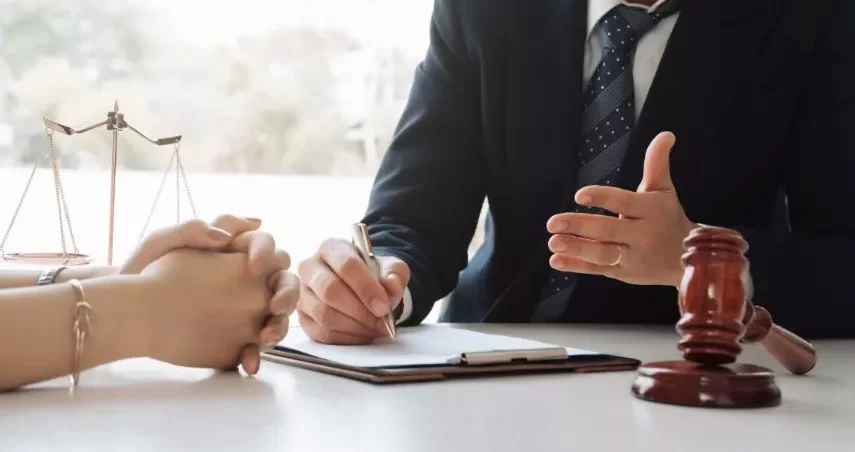Common Defenses Used by DWI Attorneys in Texas

DWI charges in Texas are serious, with hefty fines and the suspension of a license. Jail time is even possible for people facing a DWI charge. Knowing a DWI lawyer will help illuminate the process and clarify why expert legal representation could make the difference between walking out of jail and staying in jail. This blog will discuss most DWI defenses that people commonly use. Also, we will discuss how an experienced Texas Criminal Defense Attorney can help.
1. Defense against the Traffic Stop
A common defense in DWI cases is to attack the legality of the initial stop. Police officers must have at least reasonable suspicion to stop a vehicle under the Fourth Amendment. If the officer do not have specific cause for the stop—such as erratic driving, for example, or a traffic violation—the evidence obtained from the stop can be excluded in court.
Key Take-A-Way:
- Lack of Probable Cause: If a legal reason for the stop cannot be articulated by the officer, charges may be dismissed.
- Improper Procedure: Failure by the officer to follow set procedures during the stop may erode the claims of the prosecution.
2. Errors in the Breathalyzer and Blood Tests
In Texas, the police normally take a driver’s alcohol concentration in the blood via either a breathalyzer test or a blood test. However, these tests are not flawless and it is possible to challenge these in various legal defenses.
Common Problems:
- Calibration Problems: Breath analyzers require calibration to yield valid results. Therefore, if one has not been serviced properly, one’s results may be wrong.
- Human Factor: Actions by the police during the test process may also contribute to the outcome of the case. Such instances include; A policeman doesn’t observe a suspect for the mandatory 15 minutes before administering the breath test. It may throw up false results.
- Blood Test Sample Handling: Blood samples ought to be treated with extreme care. Its mishandling at any step may invite contamination or maybe the sample is mishandled, thus, allowing the occurrence of tampering.
3. Medical Conditions and Medications
Some medical conditions and prescription medications can cause the same effects as drunkenness. A DWI lawyer can assert that the defendant’s actions were a symptom of a medical condition and not due to drinking.
Conditions
- Diabetes: A diabetic may appear to be intoxicated when experiencing low blood sugar from hypoglycemia and speaking incoherently because of confusion.
- Neurological Conditions: Conditions such as epilepsy or multiple sclerosis may affect his coordination and balance to the extent that his reactions may be misinterpreted as drunkenness.
Over-the-counter or prescription drugs can cloud an individual’s cognitive and psychomotor abilities, and there are grounds for this defense if the accused was an under-prescribed medication that impaired his judgment and driving capabilities.
4. Field Sobriety Test Inaccuracies
Many Police officers use Field sobriety tests (FSTs) to determine the impairedness of a driver. Nevertheless, these tests are usually subjective and, therefore prone to change by other external factors, for instance, the condition of the driver or environmental conditions.
Common Issues with FSTs:
- Subjectivity: The outcome could be either way since it would depend on how the test is interpreted by the officer. This may again be biased by a set of factors, such as fear or drowsiness, that may lead to a failure even though the driver is sober.
- Environmental Factors: Bad weather conditions, rough terrain, and distractions can factor in the performance of field tests and, hence result in the wrong assessment of impairment.
A competent attorney can argue that the results are of dubious integrity and should not be admissible evidence of being intoxicated.
5. No Evidence of Intoxication
Key Points:
- Lack of Witnesses: There is complete difficulty on the part of the prosecution in proving such a case where the witnesses to testify regarding the alleged intoxication are absent.
The defendant does not display symptoms that clearly indicate drunkenness. For example, slurred speech or gait-can greatly aid the case in hand for the defense.
6. Plea Bargain and Alternative Sentences
At times, an attorney specializing in DWI may bargain on behalf of his client to plead for a reduced charge or appeal for alternative sentences. This can prove useful in the case of a first offender or for mitigating circumstances.
Possible Outcomes
- Minus Charges: At times, a DWI charge is reduced to a lesser offense such as reckless driving. This may involve a few harsh penalties.
- Diversion Programs: Most jurisdictions implement diversion programs whereby the court grants an individual to undergo certain requirements. These may include attending education courses. This may help in removing charges.
Conclusion
It is very intimidating when charges of DWI land in Texas. But knowing these common defenses might work to one’s advantage. It helps in settling who to represent them best in court. With a profound examination of the situation surrounding such cases, a texas DWI attorney will try to dispute the evidence brought to the table and prosecute the case accordingly.








